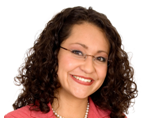Show what you know!
- FLAD
- Foreign Language Assessment Directory
- Understanding Assessment Tutorial
- Introduction
- Validity
- What do I want to know?
- What skills do I want to measure?
- What is the intended purpose of the test?
- How will I use the test results?
- What information will the test provide?
- Show what you know!
- Puzzle Piece
- Reliability
- What is the relationship between reliability and validity?
- How do I determine if a test is reliable for my situation?
- What could affect reliability?
- Show what you know!
- Puzzle Piece
- Practicality
- Do I have the resources to use this test in my classroom?
- What are the practical considerations for test administration?
- What are the practical considerations in scoring a test?
- Show what you know!
- Puzzle Piece
- Impact
- What are the possible effects of a test?
- What does positive washback look like?
- What does negative washback looks like?
- Who will be affected?
- How will different stakeholders be affected?
- Show what you know!
- Puzzle Piece
- Putting It All Together
- Needs Assessment
- Resources
- Heritage Language Assessment Module
- Introduction
- Linguistic Characteristics and Considerations
- Cultural Characteristics and Considerations
- Factors in Language Development
- Program Types
- Implications for Assessment
- Show What You Know!
- Assessing HLLs: The Why
- Assessing HLLs: The What
- Placement Tests
- Formative Assessment
- Summative Assessment
- Examples of Effective Assessment Tasks
- Summary of Best Practices
- Show What You Know!
- Assessing HLLs: The How
- Needs Assessment
- Selecting Assessments
- Modifying Assessments
- Developing Assessments
- Show What You Know!
- Putting It All Together
- Resources
- Introduction
- Post-Secondary World Language Assessment Module
- Introduction
- Proficiency
- Acquiring Proficiency
- Proficiency Levels
- Proficiency-Based Approach to Assessment: The What
- Proficiency-Based Approach to Assessment: The Why
- Proficiency-Based Approach to Assessment: The How
- Types of Assessments
- Summary of Best Practices
- Show What You Know!
- Placement Testing
- Placement Testing: The Why
- Placement Testing: The How
- Types of Assessment Tools and Approaches for Placement
- Selecting Placement Tests
- Additional Considerations
- Using Placement Test Results
- Summary of Best Practices
- Show What You Know!
- Assessment Plans
- Assessment Plans: The Why
- Assessment Plans: The How
- Aligning Assessment with Instruction
- Performance-based Assessment Tasks
- Designing Performance-based Assessment Tasks
- Scoring Performance-based Assessment Tasks
- Using Integrated Performance Assessments
- Designing Integrated Performance Assessments
- Intercultural Communicative Competence
- Assessing Intercultural Communication
- Assessing Cultures
- Assessment and Program Articulation
- Summary of Best Practices
- Show What You Know!
- Putting It All Together
- Resources
Click on one of the areas above to read an example scenario from that context.
 Margeaux, a world language instructional specialist for the elementary schools in her district, is searching for a test to use as part of a program evaluation.
Margeaux, a world language instructional specialist for the elementary schools in her district, is searching for a test to use as part of a program evaluation.
What should Margeaux think about as she searches for a test?
Questions
1. What information does Margeaux want to know?
2. What decisions might be based on this information?
After considering your own responses, click here to view the sample responses.
 Mr. Gomez, a world language instructional specialist for his school district, is searching for a test to use as part of a program evaluation.
Mr. Gomez, a world language instructional specialist for his school district, is searching for a test to use as part of a program evaluation.
What should Mr. Gomez think about as he searches for a test?
Questions
1. What information does Mr. Gomez want to know?
2. What decisions might be based on this information?
After considering your own responses, click here to view the sample responses.
 Aviva organizes international exchange programs for university students in partnership within her university’s study abroad department. Students are required to study a language for two years, after which they have the opportunity to spend a semester in an exchange program in a country that speaks the target language. Aviva is in charge of student outreach, and is looking for a test for pre-program evaluation.
Aviva organizes international exchange programs for university students in partnership within her university’s study abroad department. Students are required to study a language for two years, after which they have the opportunity to spend a semester in an exchange program in a country that speaks the target language. Aviva is in charge of student outreach, and is looking for a test for pre-program evaluation.
What should Aviva think about as she searches for a test?
Questions
1. What information does Aviva want to know?
2. What decisions might be based on this information?
After considering your own responses, click here to view the sample responses.

Elena is a Russian-English teacher at a dual language immersion program for elementary students. She has Russian heritage language learners and English heritage learners with varying levels of proficiency in her 3rd grade class, and she is searching for a formative assessment to use as part of a program evaluation.
What should Elena think about as she searches for a test?
Questions:
1. What information does Elena want to know?
2. What decisions might be based on this information?
After considering your own responses, click here to view the sample responses.
 Pramukta works for a large international software company. The company offers site-specific language training programs, and the board is concerned with how well these programs work. The company has decided to evaluate the language training program in Pramukta’s district, and he is in charge of finding an appropriate language test.
Pramukta works for a large international software company. The company offers site-specific language training programs, and the board is concerned with how well these programs work. The company has decided to evaluate the language training program in Pramukta’s district, and he is in charge of finding an appropriate language test.
What should Pramukta think about as he searches for a test?
Questions
1. What information does Pramukta want to know?
2. What decisions might be based on this information?
After considering your own responses, click here to view the sample responses
